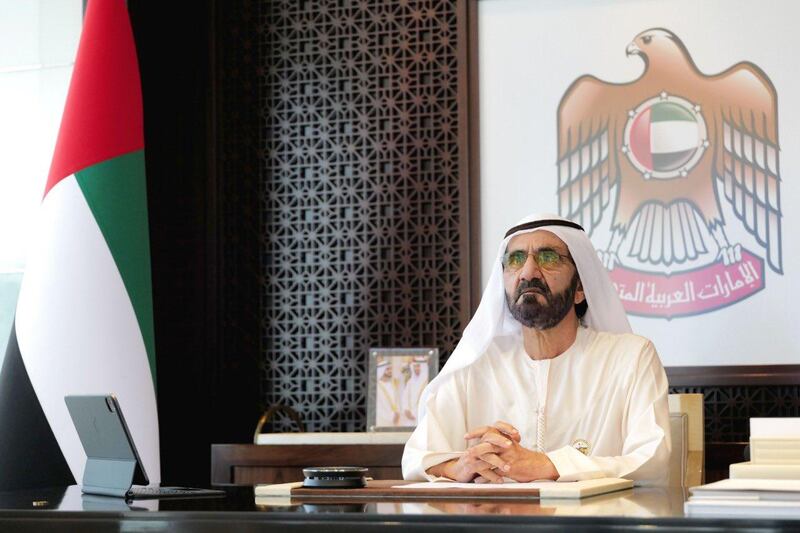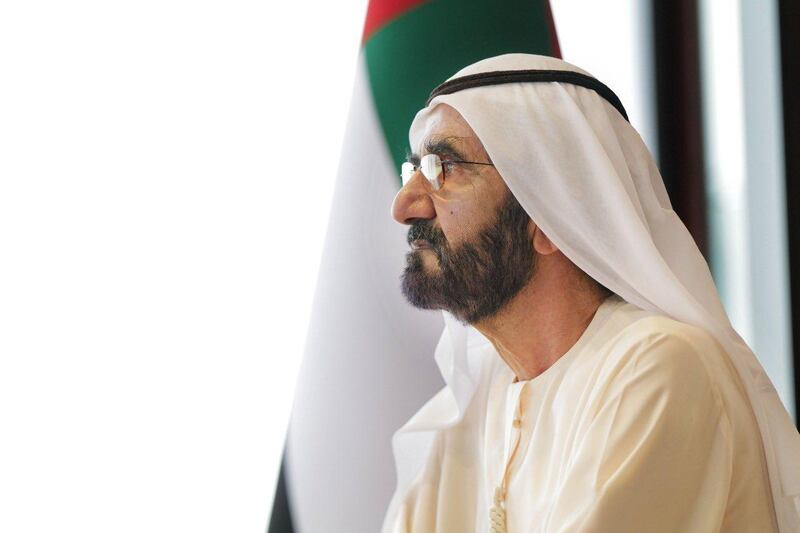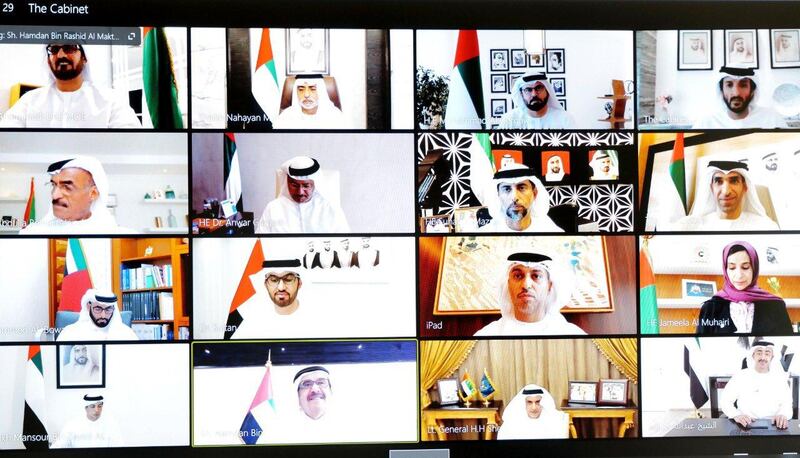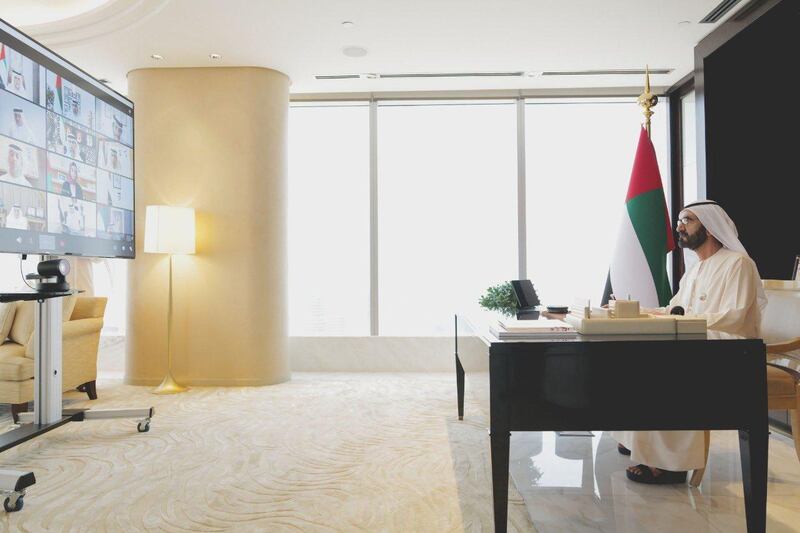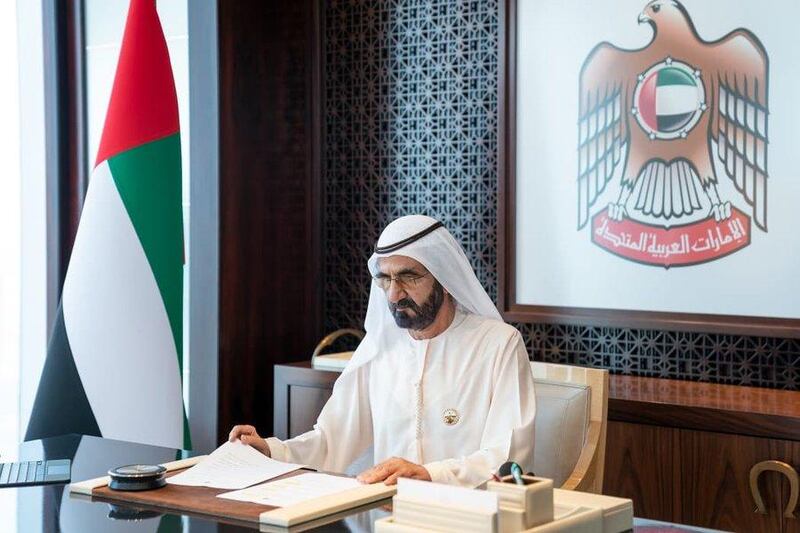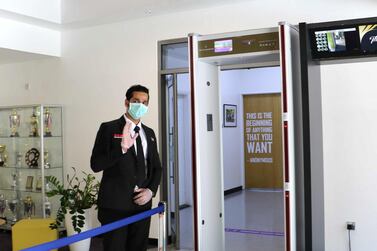The UAE Cabinet has approved the allocation Dh320 million to local universities to help "improve their future performance."
On Sunday, Sheikh Mohammed bin Rashid, Prime Minister and Ruler of Dubai, chaired the meeting in which "extra budgets" were set aside for national universities in preparation for a post-coronavirus future.
"Normality will resume at our universities and schools," Sheikh Mohammed said.
"It's the government's job to create an ideal environment for students to return in the academic year 2020-2021."
واعتمدنا اليوم ٣٢٠ مليون درهم ميزانيات إضافية لجامعاتنا الوطنية لتطوير وتحسين الأداء مستقبلاً ... ستعود الحياة لجامعاتنا ومدارسنا وصفوف طلابنا قريباً .. والحكومة وظيفتها تهيئة بيئة مثالية لعودتهم للعام الدراسي ٢٠٢٠-٢٠٢١ pic.twitter.com/dQ9M6sUTOC
— HH Sheikh Mohammed (@HHShkMohd) June 28, 2020
The Cabinet also agreed to update safety requirements for school buses to ensure pupils of all ages are protected while commuting.
Universities and schools closed in early March as part of measures to prevent the spread of Covid-19.
Classes were held online with institutions offering e-learning to ensure pupils and students did not miss out on critical education.
Schools and universities in Dubai are now expected to reopen to pupils for classes in September, with safety measures in place.
Plans for the other emirates have yet to be announced but Abu Dhabi's Department of Education and Knowledge is surveying parents on a return to school for pupils.
The Cabinet has also approved the updated safety requirements for school buses in the UAE. The update takes advantage of advanced technologies to boost safety levels.
During Sunday's meeting, the ministers also approved a national system to regulate and encourage sustainable agriculture.
Sheikh Mohammed said the system aimed to "enhance our self-sufficiency in food, and create new opportunities to ensure the sector is always ranked among the best".
''We want to invest in new agricultural fields and mechanisms by harnessing advanced technologies and make proactive changes in agricultural and food systems,'' he said.
Local farms previously said they had increased operations amid the coronavirus outbreak and were producing more fruit and vegetables than ever before to ensure Emiratis and residents had access to fresh produce.
The closure of borders affected the global shipping industry, causing a surge in demand for local produce.
The UAE Sustainable Agriculture System, approved by the Cabinet, seeks to increase self-sufficiency from some crops to 5 per cent annually and average farm income to 10 per cent.
It also aims to raise workforce in the sector by 5 per cent each year and looks for a 15 per cent annual reduction in water used for irrigation of a production unit, state news agency Wam reported.
Under the system, smartphone applications will help farmers to monitor insects' movements. Other tools will be used to exterminate or render insects infertile.
Mariam Almheiri, Minister of State for Food Security, said the system would help to raise levels of confidence in local food products.
“Sustainability in food security cuts down waste and addresses the challenges facing the sector, the most significant of which for the UAE is fresh water scarcity,” Ms Almheiri said.
“Agtech is a practical tool to strengthen the UAE system for sustainable agriculture, with closed environment agriculture systems reducing the amount of water used to irrigate crops by up to 90 per cent.
"The UAE Sustainable Agriculture System will distinguish products of local origin, facilitate their marketing and raise the level of consumer confidence, thereby encouraging customers to switch to responsible consumption."
On Sunday, the Cabinet also designated Wizz Air Abu Dhabi as a national carrier.
